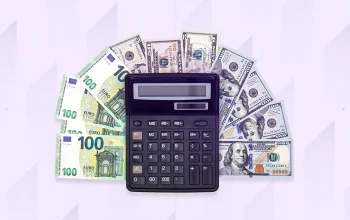Financial literacy is a set of skills that can help you earn an income, build savings and pursue financial goals. Learn to recognize common scams and fraud practices to protect yourself.
Scammers frequently pose as representatives from organizations you are familiar with, claiming you owe money or that your computer has a virus. Sometimes they even ask for payment through unusual means like purchasing gift cards or using transfer services.
Know Your Rights
Knowledge of your rights empowers you to advocate for yourself and make informed decisions regarding your situation. At Know Your Rights Trainings we collaborate with communities so that people can confidently stand up for their rights without losing confidence.
Scammers take advantage of our emotions and urgency to force us into making hasty decisions that could cost us both our money or personal information. Take time out to breathe deeply before acting on any impulse– get an independent confirmation before acting!
Criminals may pose as government officials or company representatives to convince you you owe money or need to verify your identity, then demand payment in specific amounts or ways – cryptocurrency, wire transfer or sending cash through Western Union and MoneyGram, for example. You can learn more about recognizing these types of scams on Take Five website and YouTube channel; additionally there’s this easy-to-follow brochure outlining six classic warning signs something may be fake or fraudulence.
Don’t Be Pressured
Be wary if anyone tries to pressure or coerce you into giving them money or access to your accounts quickly. They might pose as law enforcement, the CDC, bank officials or other trusted sources but in reality want your cash as soon as possible – often by offering fines, suggesting corruption of computers or that information will be leaked from these trusted sources.
Scammers use skimming devices that illegally install themselves onto ATMs, point-of-sale terminals and fuel pumps in order to steal card and PIN numbers from you. When making purchases in person it’s wise to use cash or prepaid cards so you can track where your money goes without being lured into purchasing or transferring cryptocurrency – the Take Five campaign provides excellent resources on taking time when considering financial requests.
Don’t Pay Upfront
When someone demands that you pay upfront to receive services, it is likely a scam. Scammers use various tactics to take money from victims that make it hard for them to reverse or get back their funds; for instance, people losing their homes to foreclosure may be targeted by companies promising a solution in exchange for upfront payment – for instance promising to stop or modify foreclosure processes in exchange for such payments.
Do not send wire transfers, use prepaid credit cards or digital assets like Bitcoin to fund trades or investments; rather, contact customer service using either the number on the back of your card or its official website to fund these activities.
If you have been the victim of fraud, be wary of calls, emails and social media messages promising to recover your money for a fee. They could be scammers using what’s known as a “sucker list,” where scammers buy and sell lists of names, addresses, phone numbers and personal details of people who’ve been scammed as “victims”.
Don’t Give Out Personal Information
No one is immune from financial scams and fraud, but it’s wise not to provide personal data unless you know and trust the recipient. Scammers could use your personal data for various crimes including ransomware (which locks files or systems until a fee is paid), sextortion (adults coercing children into sending explicit images online) and skimming (when devices illegally placed on ATMs, point of sale terminals or fuel pumps illegally capture your credit card information).
Be wary of anyone calling and asking for your pin number or banking password over the phone – including tapping it in using your keypad – while keeping your computer safe by restricting access to public WiFi networks and updating security software regularly. If you believe scammers have obtained any personal data from you, contact your bank immediately as they may help limit damage by blocking wire transfers, payments on checks, or even reverse fraudulent transactions.








